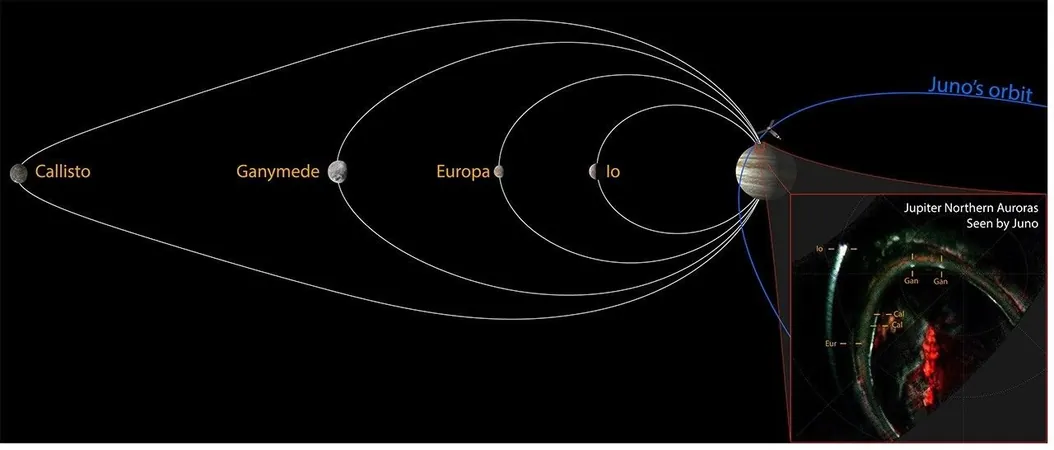
Google's AI Water Claim Sparks Controversy: Experts Urge Caution
2025-08-21
Author: Emily
Google's Bold Claim Under Fire
In a world wrestling with the environmental implications of artificial intelligence, Google has made a striking announcement: its Gemini AI assistant consumes only a trivial amount of water with each text prompt, claiming it equates to just five drops. However, experts are raising eyebrows and warning that these assertions are potentially misleading.
Breaking Down the Numbers
According to Google, a median text prompt from Gemini uses merely 0.26 milliliters of water and approximately 0.24 watt-hours of electricity, which, they argue, is akin to watching TV for under nine seconds. This leads to a mere 0.03 grams of carbon dioxide emissions. At first glance, these estimates sound impressively low.
Experts Point Out Glaring Omissions
Despite Google's claims, leading experts in energy and environmental science highlight crucial oversights in the study. Shaolei Ren, an associate professor at UC Riverside, emphasizes that the tech giant is glossing over significant data, asserting, "They’re just hiding the critical information." According to Ren, Google's study does not account for the indirect water usage linked to the cooling systems necessary for data centers, which can exacerbate water shortages in vulnerable regions.
The Bigger Picture: Energy and Pollution Concerns
Experts fear that while Google touts efficiency gains, the rising electricity demands for new AI models could lead to additional environmental strain. Increased power usage often results in the construction of new fossil fuel and nuclear power plants, which also have substantial water requirements for cooling. Ren's analysis suggests that Google’s water estimate represents only the ‘tip of the iceberg’ regarding true environmental impact.
Missing Metrics: The Case for Transparency
Another critical point is that Google's study uses a 'market-based' measure for carbon emissions, which can present an overly favorable view of its environmental footprint. Critics advocate for a 'location-based' assessment that evaluates the actual energy mix a data center draws upon, potentially showcasing a far higher impact. Ren calls this the 'groundtruth' that companies should adhere to in their assessments.
Misleading Comparisons and Peer Review Delay
Google's report references prior studies but has been criticized for not providing sufficient context. Comparing its findings with other research could mislead the public, as the methodologies differ significantly. Although Google is open to future peer reviews, the company has not responded to various pressing questions raised about its findings.
The Irony of Efficiency Gains
Even while Google boasts of a 33-fold improvement in energy efficiency for Gemini text prompts within a year, the company’s overall emissions and resource consumption continue to rise. In fact, its so-called ‘ambitions-based carbon emissions’ have increased by 11% last year alone. This paradox of increased efficiency leading to greater overall consumption—known as Jevons paradox—raises serious environmental concerns.
Final Thoughts: The Need for Honesty
As Google's claims unfold, the importance of transparency in reporting environmental impacts cannot be overstated. Experts contend that without providing a complete picture, companies may inadvertently mislead the public on the true costs of emerging technologies. According to analyst Alex de Vries-Gao, the released estimates fail to convey the full narrative, leaving observers to question the significance of Google's environmental accountability in its aggressive pursuit of AI innovation.









 Brasil (PT)
Brasil (PT)
 Canada (EN)
Canada (EN)
 Chile (ES)
Chile (ES)
 Česko (CS)
Česko (CS)
 대한민국 (KO)
대한민국 (KO)
 España (ES)
España (ES)
 France (FR)
France (FR)
 Hong Kong (EN)
Hong Kong (EN)
 Italia (IT)
Italia (IT)
 日本 (JA)
日本 (JA)
 Magyarország (HU)
Magyarország (HU)
 Norge (NO)
Norge (NO)
 Polska (PL)
Polska (PL)
 Schweiz (DE)
Schweiz (DE)
 Singapore (EN)
Singapore (EN)
 Sverige (SV)
Sverige (SV)
 Suomi (FI)
Suomi (FI)
 Türkiye (TR)
Türkiye (TR)
 الإمارات العربية المتحدة (AR)
الإمارات العربية المتحدة (AR)